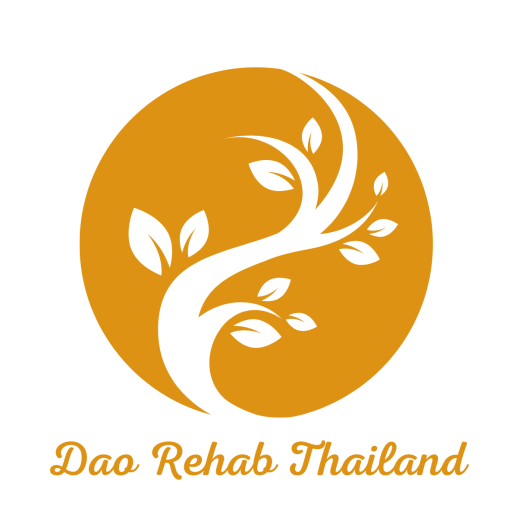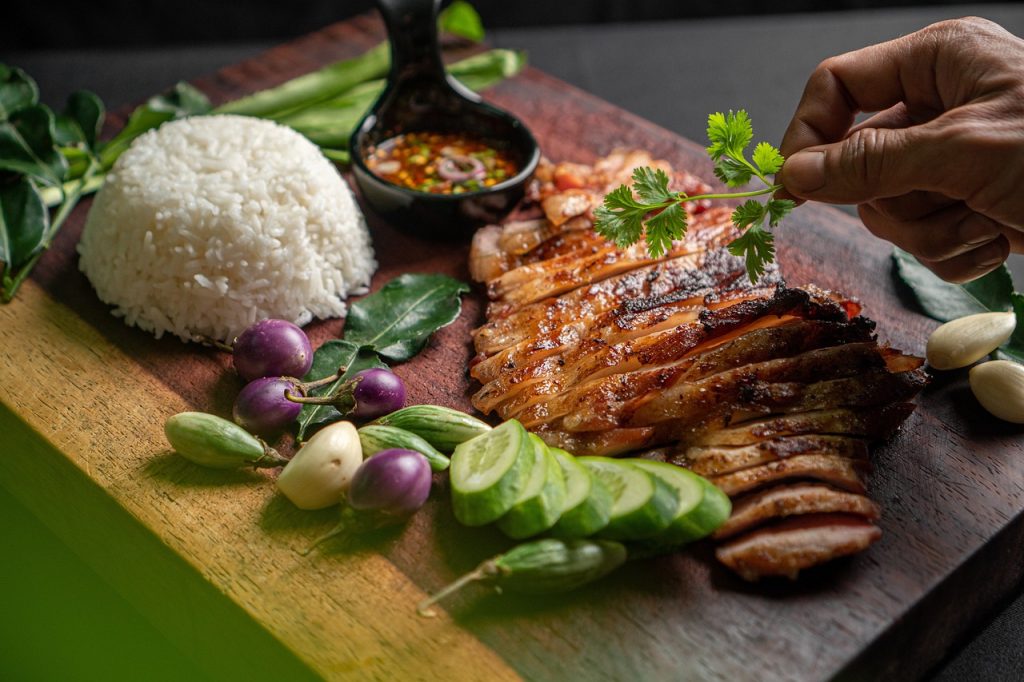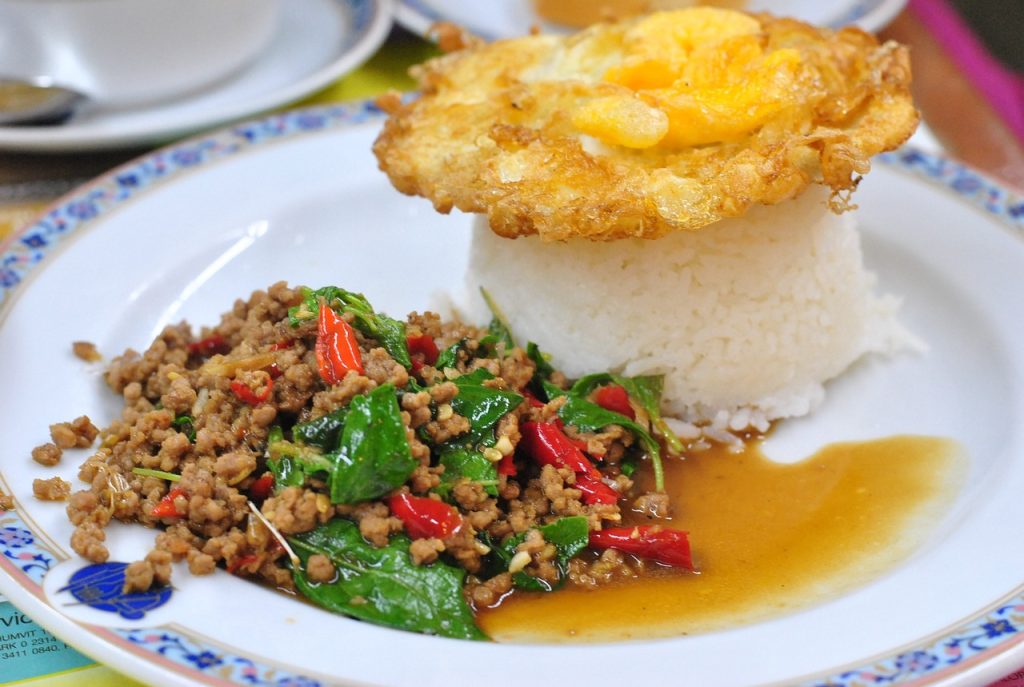recovery from trauma
leading rehab in Thailand
Everything is possible

recovery from trauma
Comprehensive Trauma Recovery in Thailand – Healing Beyond the Wounds
Rehabilitation Center Thailand
Your recovery,
is in our hands
The entire team of experts at Dao-Therapy Rehab Thailand is at your service for any matter related to trauma and addiction recovery in Thailand.
Overcoming Trauma and PTSD with Expert Care in Thailand
Trauma and post-traumatic stress disorder (PTSD) can have a profound impact on an individual’s life, affecting their mental, emotional, and physical well-being. Thailand has become a leading destination for those seeking effective treatment for trauma and PTSD, offering a unique combination of world-class rehab centers, holistic therapies, and a tranquil environment conducive to deep healing. If you’re searching for a place to recover from trauma and regain your peace of mind, Thailand provides the perfect setting for your journey to recovery.
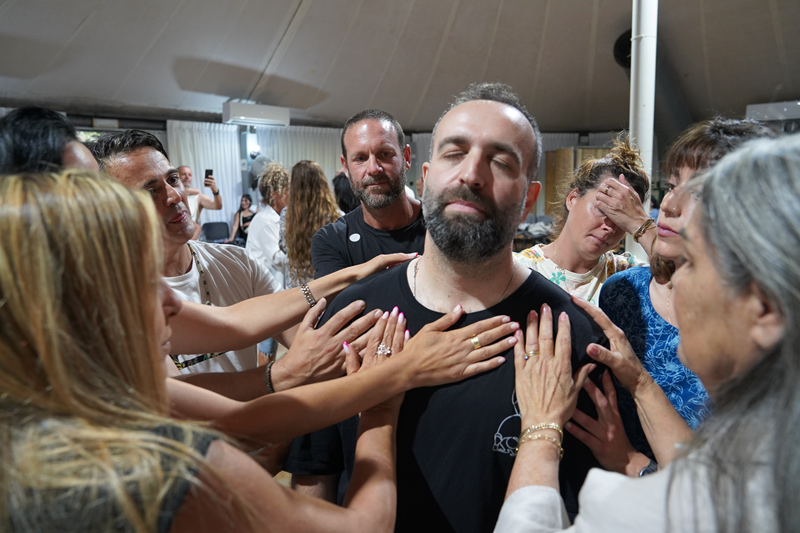
Trauma Recovery in Thailand: What to Expect
Thailand is home to some of the most respected rehab centers specializing in trauma recovery. These centers offer comprehensive programs designed to address the unique needs of individuals suffering from trauma and PTSD. Whether you are dealing with the aftermath of a single traumatic event or chronic exposure to stress, Thailand’s rehab centers provide personalized treatment plans tailored to help you process and heal from your experiences.
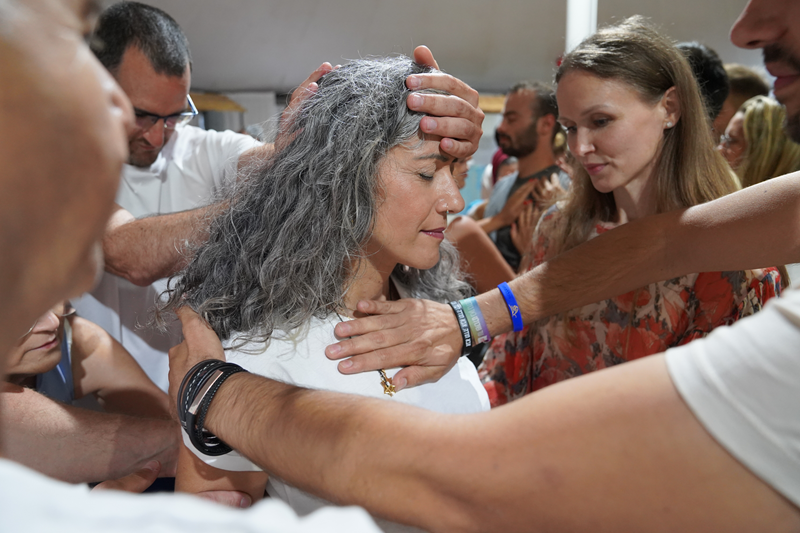
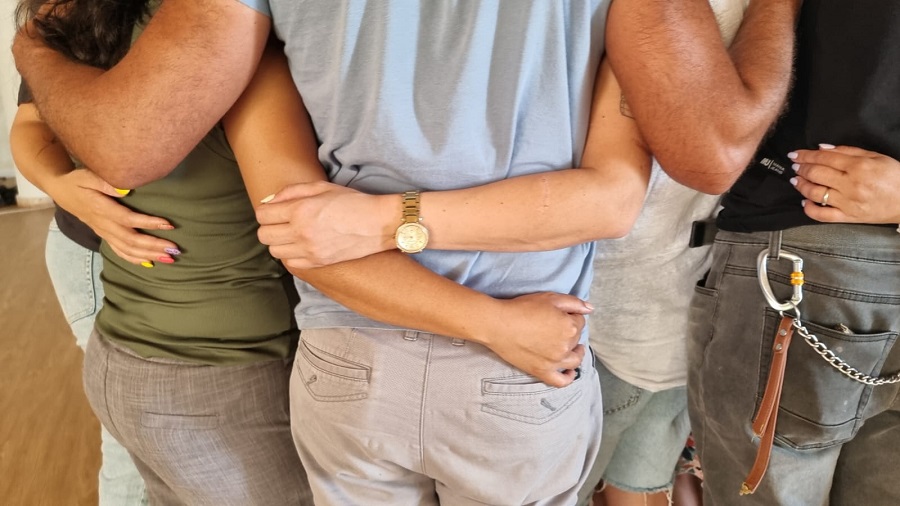
Holistic Trauma Therapy in Thailand: Healing Mind, Body, and Spirit
One of the standout features of trauma recovery in Thailand is the emphasis on holistic care. Rehab centers in Thailand understand that true recovery involves healing the whole person—mind, body, and spirit. Holistic trauma therapy may include mindfulness practices, yoga, meditation, acupuncture, and nutritional counseling, all designed to promote overall well-being and balance. This comprehensive approach helps individuals not only address their trauma but also develop the resilience and coping skills needed for long-term recovery.
Inpatient Trauma Treatment in Thailand: Intensive Support for Lasting Change
For those requiring more intensive care, inpatient trauma treatment in Thailand offers a structured and supportive environment where individuals can fully focus on their healing journey. These residential programs provide 24/7 care, including therapy sessions, emotional support, and group activities that foster personal growth and self-awareness. Inpatient treatment is particularly beneficial for individuals dealing with severe trauma or PTSD, as it removes them from triggering environments and provides a safe, nurturing space for healing.
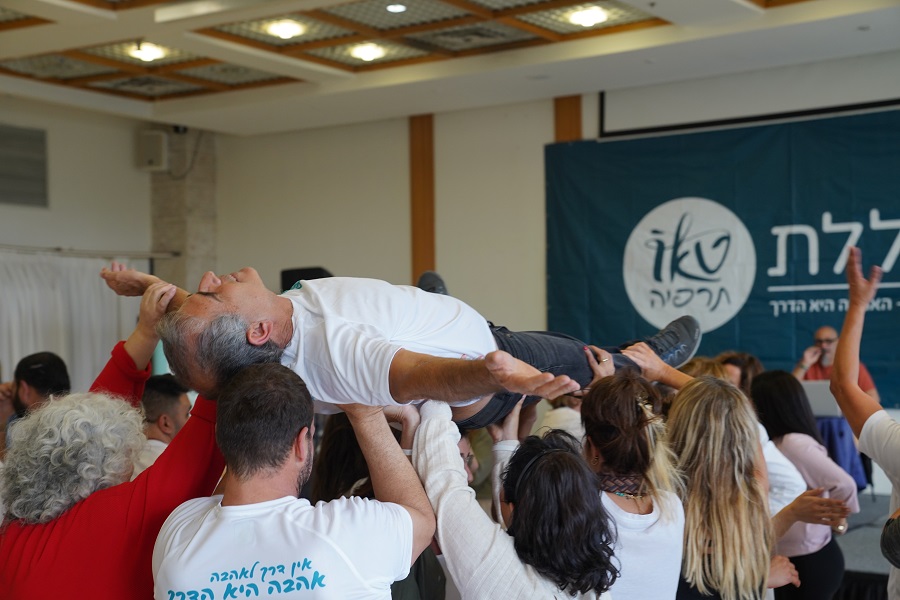
The 12-Step Program as a New Way of Life for Coping with Post-Trauma
General background on the taotherapy approach and the 12-step method
The 12-Step Program offers a new way of life for those coping with post-trauma, combat shock, and often, addictions. It is based on deep spiritual, philosophical, and psychological principles that can lead to profound perceptual and behavioral change.
One of the central ideas in the program is the importance of the group in the recovery process. Post-trauma often leads to isolation and disconnection, but the true nature of humanity is social and communal. Active participation in a 12-step support and study group allows for the experience of genuine human connection, sharing, and support. This is a crucial step in breaking free from the isolation of post-trauma.
The Serenity Prayer, which is central to the program, encapsulates a key insight: the ability to discern between what can be changed and healed and what requires acceptance of the situation. Post-trauma and mental distress are often characterized by a compulsive need to control through hypervigilance. The Serenity Prayer invites letting go of the attempt to control what we cannot and focusing on what we can manage—our inner work on ourselves. As the prayer is internalized, one begins to experience less suffering and more peace.
The program asserts that real change occurs when we alter the way we perceive ourselves and the world. When perception changes, behavior also changes, and gradually, life transforms. Cognitive change ultimately leads to changes in close relationships, broader life circles, and more effective and fruitful functioning.
However, such a transformation requires consistent and daily work. The tools of the program, such as doing steps, mentoring, prayer, and meditation, need to be applied. Courage is also needed to look inward and admit the inner truth, even if it is difficult. The program emphasizes the importance of action and experience, beyond mere intellectual understanding. Only through this comes the internalization and change of thought and behavior patterns.
Just as it is impossible to truly explain the taste of honey to someone who has never tasted it, so too the program can only be truly understood through personal experience. But to experience it, one must commit to it, actively participate in it, and give it time. Only then can the desired transformation occur—from suffering to liberation, from isolation to belonging, from the illusion of control to acceptance of reality.
This process is also accompanied by challenges. The environment within the program must be safe and respectful, as only in such a setting can one open up and share. In the broader society, the need to abstain from prescription pills, drugs, and alcohol to recover from trauma is not always understood. The drive for control, which characterizes post-trauma, is natural and human, and therefore difficult to relinquish even when it is clear that it causes suffering.
But it is precisely because of these challenges that the group is so important, where everyone shares a similar experience and one goal—the journey of recovery. When hearing others describe difficulties and victories that are familiar to us, it becomes easier to connect and persevere. Recovery cannot happen in isolation; it is a collective process of mutual sharing and growth.
Ultimately, the 12-Step Program is a journey of liberation. It allows the gradual dismantling of the fragile ego that clings to control, and finding true inner security. It leads to deep acceptance of ourselves, life, and others. It teaches how to live in peace, compassion, and joy. It is a gradual, daily process of choosing a new way of life based on mutual responsibility, personal accountability, and faith in a power greater than ourselves.
The 12-Step Program, originally created for Alcoholics Anonymous, has over time become a leading model for recovery from various addictions and mental illnesses. The program offers a journey of personal transformation, based on deep spiritual and psychological principles. It invites a journey of self-reflection, personal responsibility, connection to a higher power, and community. These lead to profound perceptual and behavioral change, ultimately resulting in a life of freedom, fulfillment, and peace.
The power of the group
One of the central pillars of the program is the recognition of the importance of the group in the recovery process. The illness, whether it involves post-trauma, addiction to drugs, gambling, or other destructive behaviors, ultimately leads to loneliness and disconnection. The secrecy, shame, and guilt isolate the sufferer, even when surrounded by people. However, the true nature of humanity is communal and social. We need connection, belonging, and touch.
Active participation in a group allows for the re-experience of genuine human connection. When sharing pain and struggle with others who have gone through similar experiences, the loneliness begins to dissipate. Participants realize they are not alone, that there are others who empathize and understand their pain. They receive a listening ear and the opportunity to express themselves honestly, without fear of judgment.
In the group, participants also learn from the experiences of others and give of themselves in return. This mutual exchange of receiving and giving is healing and empowering. It allows them to reconnect with their true self, beyond the illness. They transform from isolated survivors to collective warriors, part of a larger movement of recovery and transcendence. Gradually, they regain trust in themselves and others, along with a renewed sense of purpose and meaning. The group becomes an integral partner in the recovery journey.
distinguish between acceptance and change
Another essential insight offered by the program, embodied in the Serenity Prayer, is the ability to distinguish between what can be changed and what requires acceptance. Addiction or mental distress often involves a sense of complete loss of control on one hand, and a compulsive need to control everything on the other. The person feels helpless in the face of their impulses, the circumstances of their life, and the behavior of others. They experience frustration and pain over their inability to manage their life as they wish. But paradoxically, they also try to control everything—their thoughts, their emotions, their relationships, and the outcomes of their actions.
The Serenity Prayer, which serves as a mantra for the program, invites focusing energy elsewhere. Instead of trying to force reality to change, it encourages accepting what is beyond our control. It urges us to accept the fact that thoughts and emotions have a life of their own, that the behavior of others is not within our control, and that our dreams and desires have limits. It is an invitation to accept reality as it is, in all its complexity.
However, alongside acceptance, the prayer also encourages focusing on what can be changed—the inner self. It reminds us that we have the courage and ability to shape our inner world, to determine how we respond to reality. We can develop self-awareness, recognize negative patterns, and change them. This is perhaps the most significant change we are capable of achieving.
Finally, the prayer seeks the wisdom to distinguish between these two realms—between the reality that must be accepted and that which can be changed. This is a deep life wisdom that develops gradually. The more one practices the prayer and makes it a way of life, the more this insight and discernment become part of one’s being.
Internal change, change in the world
The program repeatedly emphasizes that real change begins from within. When we change our perspective, the way we perceive reality and ourselves, our entire experience transforms. Instead of seeing ourselves as victims of life’s circumstances or of others, we begin to take responsibility. We recognize our power to choose, to shape our attitudes, our emotions, and our reactions. Instead of struggling against reality, we learn to accept and embrace it, to draw lessons from it.
This change doesn’t remain only within us. As we change, our entire relationship with the world gradually transforms. We stop being so dependent on external factors for our sense of self-worth and happiness. The source of our confidence and self-esteem becomes more internal and stable. As a result of the shift in our mindset and behavior, our relationships with those around us also improve. We become less demanding and controlling, more attentive and empathetic, genuinely open to embracing others.
Gradually, all aspects of life—family, work, society—undergo a transformation. Instead of relationships based on struggle and power, partnerships and balance emerge. With the recognition of the limits of personal responsibility, humility and reciprocity develop. Life becomes a shared adventure of discovery and learning, rather than a battleground. This is perhaps the most significant change the program facilitates—the transition from misery, loneliness, and struggle to a life of connection, self-fulfillment, and peace.
Commitment and persistence in the process
This change doesn’t happen all at once; it requires constant inner work. A commitment is needed to apply the tools of the program daily, repeatedly. Whether it’s working through the steps, engaging in personal mentorship, practicing prayer and meditation, or utilizing any other tool, this journey is, in a sense, a lifelong one. There is never a “finish line,” but rather a deepening of insights, spiritual connection, and compassion.
This is not an easy path. It demands courage and determination, honesty, and a willingness to look inward even when it’s difficult. Often, habits, wounds, and memories surface that we would rather suppress. But precisely there lies the key to liberation—in the ability to recognize them, to confront them with compassion and acceptance.
The program places great emphasis on the importance of action and experience, beyond mere intellectual understanding. The principles and tools can be grasped intellectually, but they become part of one’s inner being only through application and experience. Just as one cannot truly understand the taste of honey without tasting it, so too the insights of the program require direct engagement with the human experience in all its facets. It is only through doing and repetition that this new way of life is internalized and integrated.
Challenges in the recovery journey
This journey is not without its difficulties and challenges. It requires openness and courage to share, to expose oneself, and to admit weaknesses. This is almost impossible without a safe and supportive environment, without the assurance of confidentiality and freedom from moralizing. Creating and maintaining such an environment is a complex task that requires persistence and constant vigilance.
Challenges can also come from the outside. The broader society does not always understand the principles of the program. The idea of complete abstinence from addictive substances, from toxic places, things, and people, for example, may be perceived as extreme in a society where their use is widely accepted as the norm. The belief that the power of recovery comes from surrendering to a higher power may clash with values of individualism and the pursuit of achievement at all costs. This requires the recovering individual to have faith in their path and to adhere to it, even in the face of external skepticism and misunderstanding.
Another difficulty lies in human nature itself. The tendency to control, to avoid pain, and to seek immediate gratification is universal. Even when one recognizes that this tendency is destructive, it is hard to let go of it and embrace a new way. Again and again, the question arises: Can I really trust this process? Is there truly another way? These doubts are an integral part of the journey, and acknowledging them and being willing to explore them is, in itself, a form of progress.
The healing power of connection
Precisely because of these challenges, the group becomes a source of strength and inspiration. In the group, one encounters others who share similar life experiences and are working towards the same goals. Through sharing and listening, it becomes evident time and again that the struggles and frustrations are not unique to us. Seeing the progress of group members makes it easier to believe in our own potential. Each person becomes both a student and a teacher, offering support and receiving it in return. The bonds formed within the group are deep and meaningful, often far beyond the family or social connections that existed before.
This is, in fact, one of the most significant lessons of the program—the recognition that recovery will never happen in isolation; it only works together. Recovery is necessarily a mutual process, where each participant contributes to others and is enriched by them in return. In this process, forces and wisdom are created that go beyond the capability of any individual alone. This is the power of the human spirit when it operates in cooperation and unity.
Towards true freedom
As one progresses on the journey of the 12 Steps, the true gift of the program begins to reveal itself—freedom. This is a freedom from the chains of active post-trauma, from compulsiveness, obsessiveness, and self-centeredness. But beyond that, it is a freedom from the mental patterns that originally created the suffering. It is the freedom to be who we truly are, beyond fears, anxieties, flashbacks, expectations, and the roles we have taken upon ourselves.
It is an opportunity to define a new identity for ourselves, based on values like integrity, compassion, responsibility, and giving. Instead of being driven by the ego and its needs, we begin to live lives of meaning and purpose. We discover that true joy and satisfaction lie in self-fulfillment and contributing to others, not in material achievements or external validation.
This journey is a process of surrender—not out of weakness, but out of recognition of our limitations as human beings. It is the understanding that we are not gods or all-knowing, and that we can never fully control life. But within this surrender, a greater power is revealed, one that comes from connecting to our true selves, to others, and to a Higher Power. As we let go of the need to fight and struggle, to change and fix things compulsively, we become more open to simply living.
This is not a path of perfection. The illness is always in the background, along with the constant challenge of recovery. But the program allows us to build lives of peace and meaning despite our limitations and challenges. It teaches us to accept ourselves and who we are, and from that acceptance, to grow and evolve throughout our lives.
one day at a time
Toggl
Ultimately, the program offers a way of life, not a one-time magic solution. It invites us to recommit every day to its values and principles, to choose again and again honesty, integrity, humility, courage, and the willingness to serve and seek help. This choice is made moment by moment, action by action.
The well-known phrase in the program, “One day at a time,” reflects the understanding that recovery and growth happen in the present, not in the future. They depend on what we do here and now, not on what we will do tomorrow or next year. Every day brings new challenges and opportunities to learn, practice, and change.
This is a journey of gradual awakening, of tiny but cumulative changes over time. Every time we choose the path of truth and love, we create ripples of influence that reshape our lives and relationships. It may sound simple, but it is a choice that requires immense courage because it involves facing our greatest fear—the fear of who we can become.
But if we are willing to take the plunge, the discoveries that await are breathtaking. The discovery of inner strength and resilience, of healing love, of boundless connection. The program is essentially an invitation to the greatest adventure—to become who we were meant to be, and through that, to participate in the evolution of humanity as a whole. It is a journey we all share, together.
e Content
PTSD Treatment in Thailand: Specialized Care for Lasting Recovery
Post-traumatic stress disorder (PTSD) requires specialized treatment to address the deep-rooted effects of trauma. Thailand’s rehab centers are equipped with experienced therapists and counselors who specialize in PTSD recovery. Through a combination of evidence-based therapies, such as cognitive-behavioral therapy (CBT), eye movement desensitization and reprocessing (EMDR), and holistic practices, patients are guided through the process of healing and reclaiming their lives. This integrative approach ensures that both the symptoms and root causes of PTSD are effectively treated.
Trauma Healing Retreats in Thailand: A Sanctuary for Emotional Recovery
Thailand’s trauma healing retreats offer a unique opportunity for individuals to escape the pressures of daily life and focus entirely on their recovery. Set in serene and natural environments, these retreats combine therapeutic interventions with relaxation and mindfulness practices. Participants benefit from a holistic approach that addresses both their emotional and physical well-being, allowing them to reconnect with themselves and find inner peace.
Long-Term Trauma Recovery and Aftercare in Thailand
Healing from trauma is a continuous journey that extends beyond the initial treatment phase. Thailand’s rehab centers emphasize the importance of long-term trauma recovery and aftercare, offering comprehensive programs that help individuals maintain their progress and prevent relapse. Aftercare services may include ongoing counseling, support groups, and access to wellness communities, ensuring that individuals continue to receive the support they need as they transition back into their daily lives.
Why Choose Thailand for Trauma and PTSD Recovery?
Choosing Thailand for trauma and PTSD recovery offers numerous benefits. The country’s rehab centers are staffed by experienced professionals who specialize in trauma-focused therapy and holistic healing. Additionally, Thailand’s natural beauty and tranquil environment provide an ideal setting for recovery, helping patients relax and focus on their healing journey. Whether you are looking for a luxury retreat experience or a more affordable option, Thailand offers a range of choices to suit your needs and support your path to emotional well-being.
Begin Your Trauma Recovery Journey in Thailand
If you or a loved one is struggling with trauma or PTSD, Thailand offers the ideal environment for effective and compassionate treatment. With its blend of modern and holistic approaches, comprehensive care, and supportive community, Thailand’s rehab centers are equipped to guide you on the path to lasting recovery. Don’t wait—take the first step toward healing and emotional wellness by exploring the trauma and PTSD recovery options available in Thailand today.
contact us
Anonymous Email: You can send an email without revealing your identity by using an anonymous email service or creating a new email account with no personal information attached.
Your privacy is important to us, and we are committed to maintaining your anonymity in all communications.
The Epidemic of Heroin and Fentanyl Addiction
The Epidemic of Heroin and Fentanyl Addiction
Addiction to hard drugs like heroin and fentanyl has become a severe and deadly problem worldwide. These drugs are alarmingly accessible, both on the streets and through medical prescriptions, posing a temptation for many who suffer from physical or emotional pain. Addiction develops rapidly, with the dosage required to achieve the desired effect continually increasing, often leading to overdoses and, in many cases, death.
Summary of the Article:
Hard Drug Addiction: The Challenge of Heroin and Fentanyl
Addiction to hard drugs like heroin and fentanyl has become a severe and deadly issue worldwide. These substances are alarmingly accessible, both on the streets and through medical prescriptions, tempting many who suffer from physical or emotional pain. Addiction develops rapidly, with the dosage needed to achieve the desired effect increasing over time, often leading to overdoses and, in many cases, death.
For an addicted individual, the need for the drug becomes the central focus of their life. They are willing to do anything to obtain the substance, even at the cost of suffering, humiliation, and loss. Family members and loved ones often feel helpless and struggle to understand the intensity of the disease. They try to help, but don’t always know the right way to do so.
The only way to break free from the cycle of addiction is through professional treatment and long-term support. There are several options, including private or public rehabilitation centers, therapeutic communities, day centers, and inpatient facilities. However, it’s crucial to understand that treatment within these settings alone is not enough. Addiction is a chronic disease that requires a comprehensive change in lifestyle and thought patterns.
A key component of recovery is active participation in a support group, such as Narcotics Anonymous (NA). In these group meetings, individuals learn a new language, receive tools and support, and develop new meaning and purpose in life. It is a long and challenging process, but it is certainly possible.
It’s important to remember that addiction is not only the concern of the addict—it affects all aspects of their life, especially their family. Therefore, it is highly recommended that family members also seek help and support, for example, through groups like Nar-Anon. The more involved and supportive the family is in the recovery process, the greater the chances of success.
The key message to remember is that addiction to drugs is not a fate or a punishment. It is a treatable disease, and every addict can recover from it, provided they are willing to put in the necessary effort and receive the appropriate help. The path to freedom from addiction may involve challenges, setbacks, and doubts, but ultimately, change is possible, and a healthy, meaningful life awaits at the end.
Addiction to Hard Drugs - A Deadly Epidemic
In recent years, addiction to hard drugs like heroin and fentanyl has become a true epidemic, claiming countless lives around the world. These drugs, which can be obtained both on the street and through medical prescriptions, present a tempting lure, especially for those suffering from physical pain or mental health issues. The fact that they are so easily accessible is deeply concerning, as it exposes many individuals to the very real risk of addiction, which can quickly develop and take over their lives.
When someone becomes addicted to a drug like heroin or fentanyl, they soon find themselves trapped in a vicious cycle. To achieve the desired effect, they are forced to increase the doses they take, as the body rapidly builds a tolerance to the substance. However, as the doses increase, so does the risk of overdose, which can be fatal. Many addicts do not survive their encounters with these potent drugs, and the tragic consequences devastate not only the individuals themselves but also their families and society as a whole.
The Drug Becomes the Center of the Addict's World
For a person who has become addicted to these substances, the need for the drug quickly becomes the central axis around which their entire world revolves. Obtaining the next fix becomes the primary goal driving them, overshadowing all other considerations. The addict is often willing to do almost anything to secure the next dose, even at the cost of suffering, loss, or humiliation. They may lose their family, job, health, and freedom, yet the compulsion for the drug continues to dominate their actions.
The addict’s family and close ones often feel helpless in the face of the addiction. It is difficult for them to understand how someone they love, who was often once a successful and functional person, could descend into such a dire situation. They want to help, but frequently fall into the cycle of addiction themselves in their failed attempts to offer support. In other cases, the family may try to force the addict into recovery, not fully grasping the nature and complexity of the disease. Without the proper tools and knowledge, the addict’s surroundings might inadvertently worsen the situation, despite their good intentions.
The Path to Breaking Free from the Cycle of Addiction
The good news is that even from such a desperate situation, it is possible to break free. The only way to escape the cycle of addiction is through seeking professional help and receiving consistent, long-term support. The addict must recognize that they cannot overcome the addiction on their own and that they need to turn to those who can provide the essential tools and support they so desperately need.
There are various treatment options available that can be tailored to the individual needs of each addict. Some may choose to go to a private or public rehabilitation center, where they can receive intensive medical and psychological support. Others might prefer to join a therapeutic community that offers a structured and rehabilitative way of life. There are also day centers that allow the addict to integrate into the treatment process while continuing to function within the community. In urgent and dangerous situations, hospitalization in a closed psychiatric facility may be required.
However, even the most dedicated treatment in the best possible setting will not suffice if the addict is not determined to change. Addiction is a chronic disease that demands comprehensive and prolonged care. The addict must learn to rediscover themselves, adopt healthier thought patterns and behaviors, and cope with emotional pain and distress in non-destructive ways. This is a process that requires time, effort, and great determination from the addict.
Support Group - An Essential Component of Recovery
A key component in the recovery process is active participation in a support group, such as Narcotics Anonymous (NA). Group meetings offer a golden opportunity to relearn the language of recovery, internalize new tools for coping with challenges, and develop new, healthy meanings and purposes in life. Within the group, the addict finds a listening ear, genuine understanding, and human warmth. They discover that they are not alone in their struggle, and that many others share their feelings and experiences.
Participation in the group helps on several levels: First, it reduces the sense of isolation and helplessness that the addict feels. Second, it provides practical insights and tools for dealing with the disease. Third, it offers hope and motivation to continue the process, as the addict sees the successes of others who have walked the path before them. Finally, it allows the addict to contribute their own experience and help others, which greatly reinforces their own recovery.
The road to recovery is neither easy nor quick. There will be setbacks and relapses, and progress won’t always be linear. However, as long as the addict continues on the path of recovery, keeps attending group meetings, and seeks help when needed, their chances of rebuilding their life and finding happiness and peace increase.
Addiction – A Family Disease
The final important point to emphasize is that addiction affects not only the addict but also all their life circles, especially their immediate family. Living alongside an addict is a Sisyphean journey of hopes and disappointments, of love and pain. Family members may find themselves trying to protect the addict, finance their destructive behavior, or hide it from the eyes of others. In doing so, they often neglect themselves and other family members, living under constant stress and anxiety.
Therefore, it is crucial that the addict’s family also seeks help and support. Organizations like Nar-Anon offer dedicated support groups for parents, spouses, and children of addicts. In these groups, family members learn about the nature of addiction, acquire tools to identify and set healthy boundaries, and focus on nurturing their own well-being. They come to understand that in order to truly help the addict, they must stop trying to control the disease and instead focus on controlling their own reactions and behaviors.
The more involved the family is in the treatment and recovery process, the greater the addict’s chances of success. If the family can provide the right support, set necessary boundaries, and care for themselves at the same time, they can become a source of strength and hope for their addicted loved one. Together, they can rebuild lives filled with meaning, love, and joy.
The Most Important Message
The most important message to remember is that addiction to hard drugs is not a fate or a punishment from above. It is a real disease with biological, psychological, and social foundations. And like any disease, there are ways to treat it and recover from it. Every addict, without exception, is capable of rehabilitating and building a new life, provided they are willing to accept help and do the necessary work.
The process won’t be easy or quick, and it will require the addict to confront past wounds, destructive patterns, and deep pain. But at the end of the journey, the reward is life itself—the freedom to become the person they can be, to fulfill their potential, and to live in peace and joy.
If there are people reading these words who recognize themselves or their loved ones in the descriptions of the suffering and destruction of addiction—do not lose hope. Seek help today, share the heavy burden with professionals, family members, and group members. You are not alone, and there is a way out. Step by step, day by day—you too can move from bondage to freedom, from darkness to light. The path will not be easy, but it leads to life itself—and that is the greatest gift of all.
Practical Tips from the Article
- Seek Professional Help: The first and most crucial step in overcoming addiction is recognizing that you cannot do it alone. Seek professional help from a rehabilitation center, therapist, or support group that specializes in addiction recovery.
- Participate in a Support Group: Regularly attending support groups like Narcotics Anonymous (NA) is vital. These groups provide a community of people who understand what you are going through and can offer support, tools, and hope throughout the recovery process.
- Involve Your Family: Addiction affects not only the addict but also their family. It’s important for family members to seek their own support through groups like Nar-Anon and to be involved in the recovery process.
- Set Healthy Boundaries: For both the addict and their family, learning to set and respect healthy boundaries is essential. This helps in maintaining a supportive environment while avoiding enabling behaviors.
- Focus on Long-Term Recovery: Understand that recovery is a long-term process that requires ongoing effort and commitment. It’s not just about detoxing from the substance but also about making significant changes in lifestyle, thought patterns, and coping mechanisms.
- Don’t Lose Hope: No matter how difficult the journey may seem, remember that recovery is possible. Stay motivated, seek help when needed, and take it one day at a time. Every step forward brings you closer to a life of freedom and fulfillment.
haven for those
seeking recovery
Nestled in the serene surroundings of Pranburi, Dao-Therapy Rehab offers a tranquil haven for those seeking recovery. Pranburi, with its stunning coastal views and peaceful atmosphere, is an ideal location for deep healing and transformation. Our center is designed to blend seamlessly with the natural beauty of the area, creating a serene environment where clients can focus on their recovery. At DaoTherapy Rehab, we combine the best of holistic therapies with the proven success of the 12 Steps program. Our team includes some of the most skilled therapists and practitioners, all dedicated to guiding our clients through their journey of healing. Surrounded by the calm of nature, clients benefit from a uniquely tailored program that addresses the physical, emotional, and spiritual aspects of recovery. Pranburi is not just a place to heal; it’s a place to renew, restore, and reclaim your life.
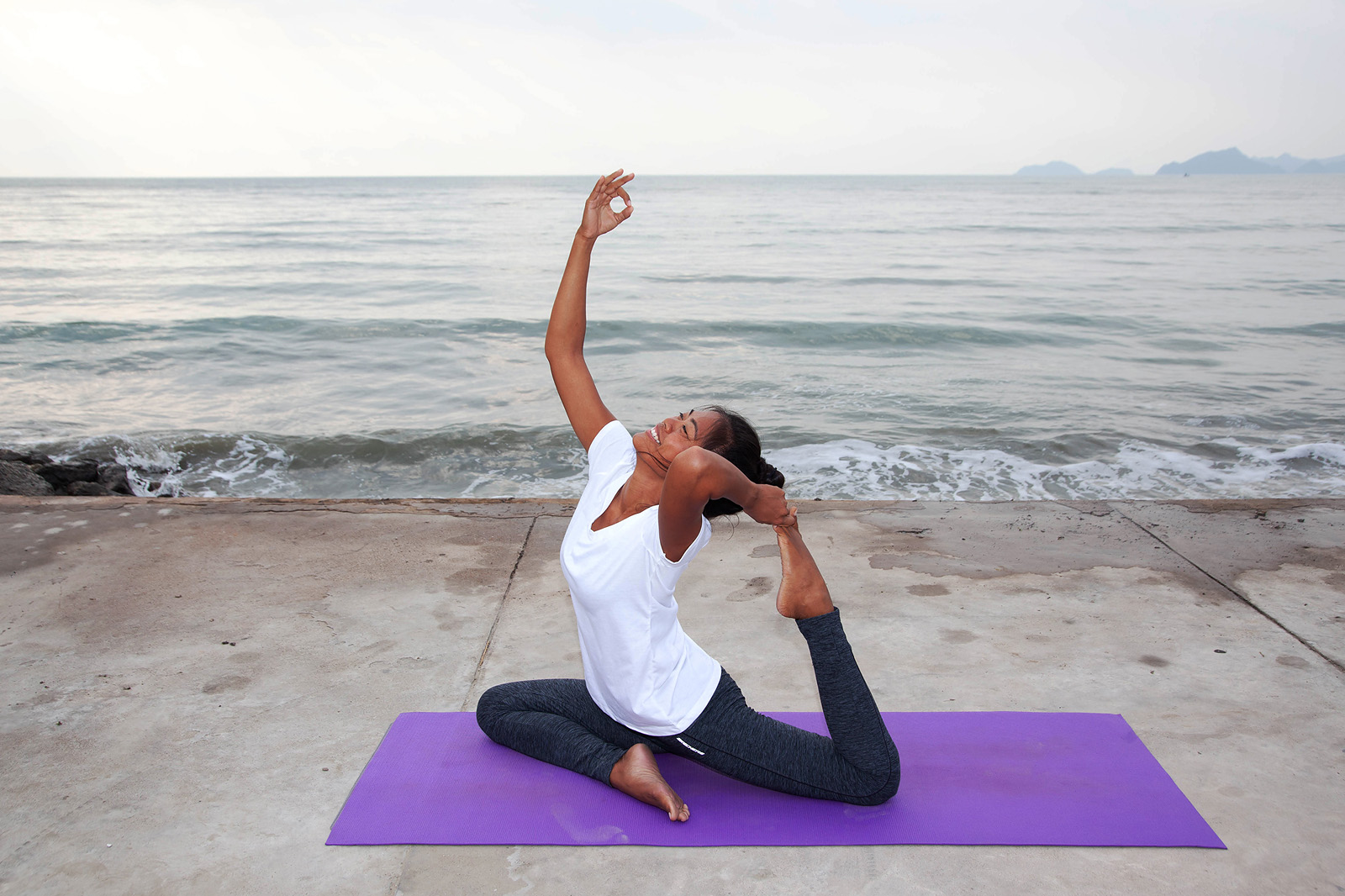
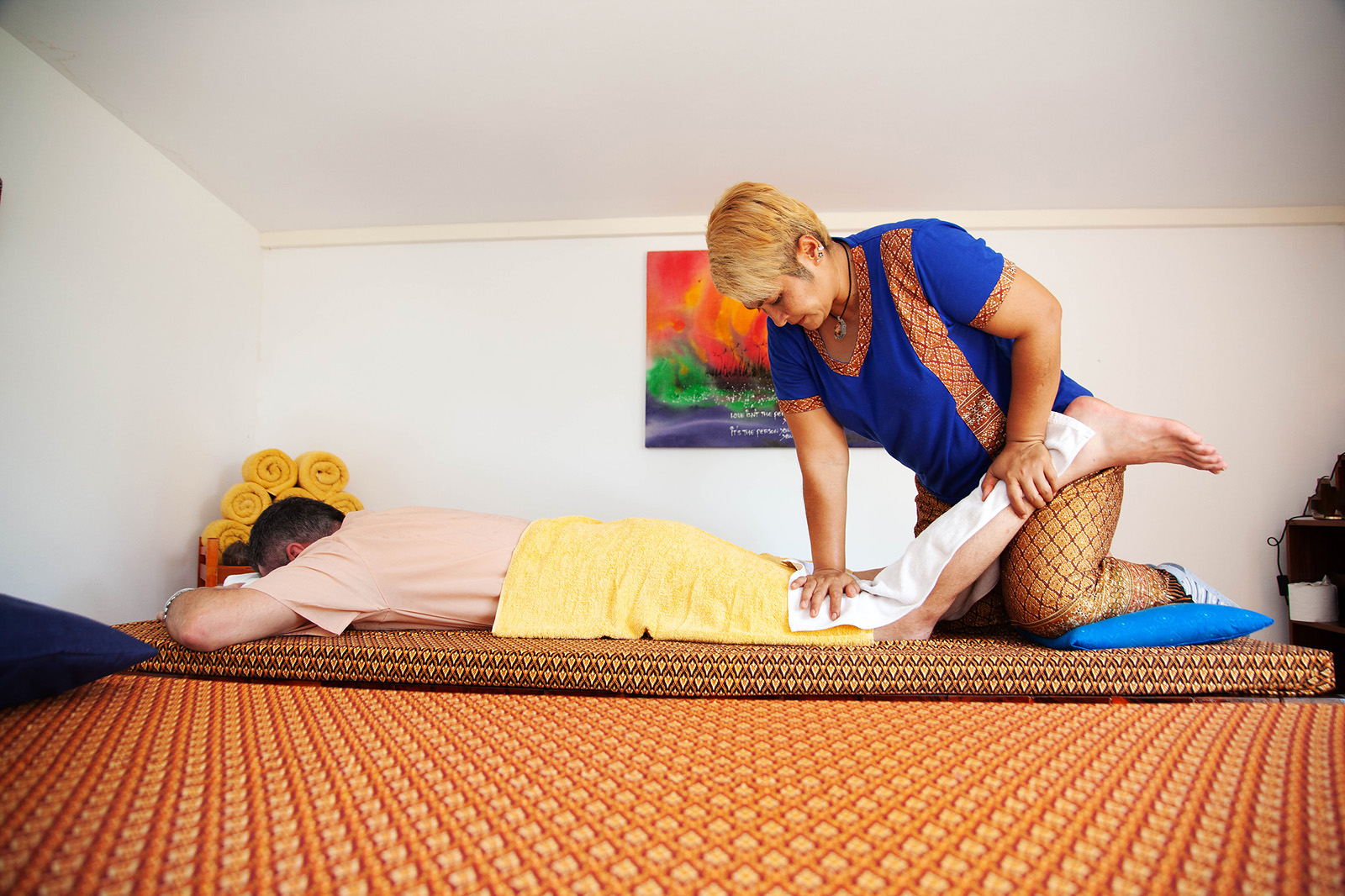
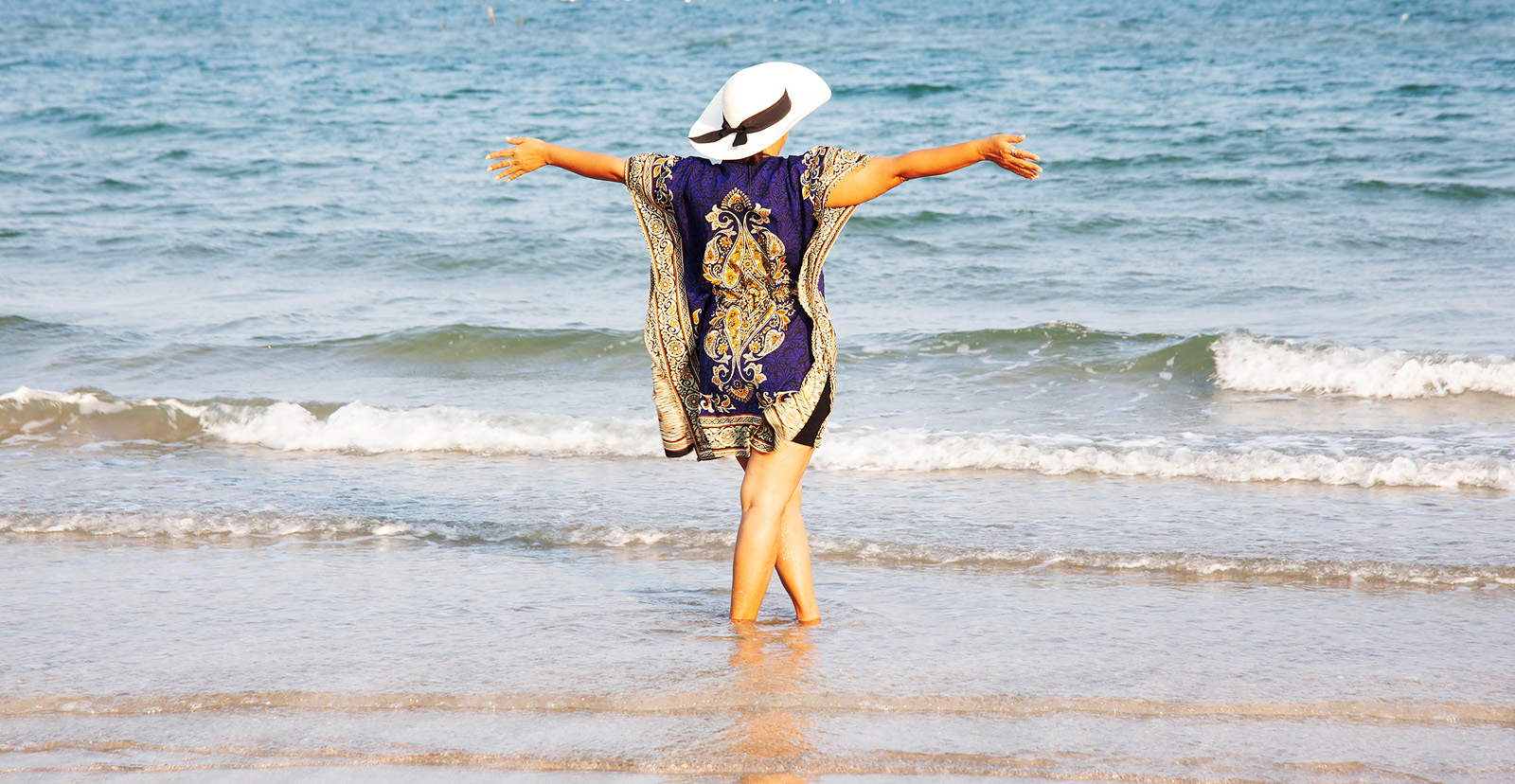
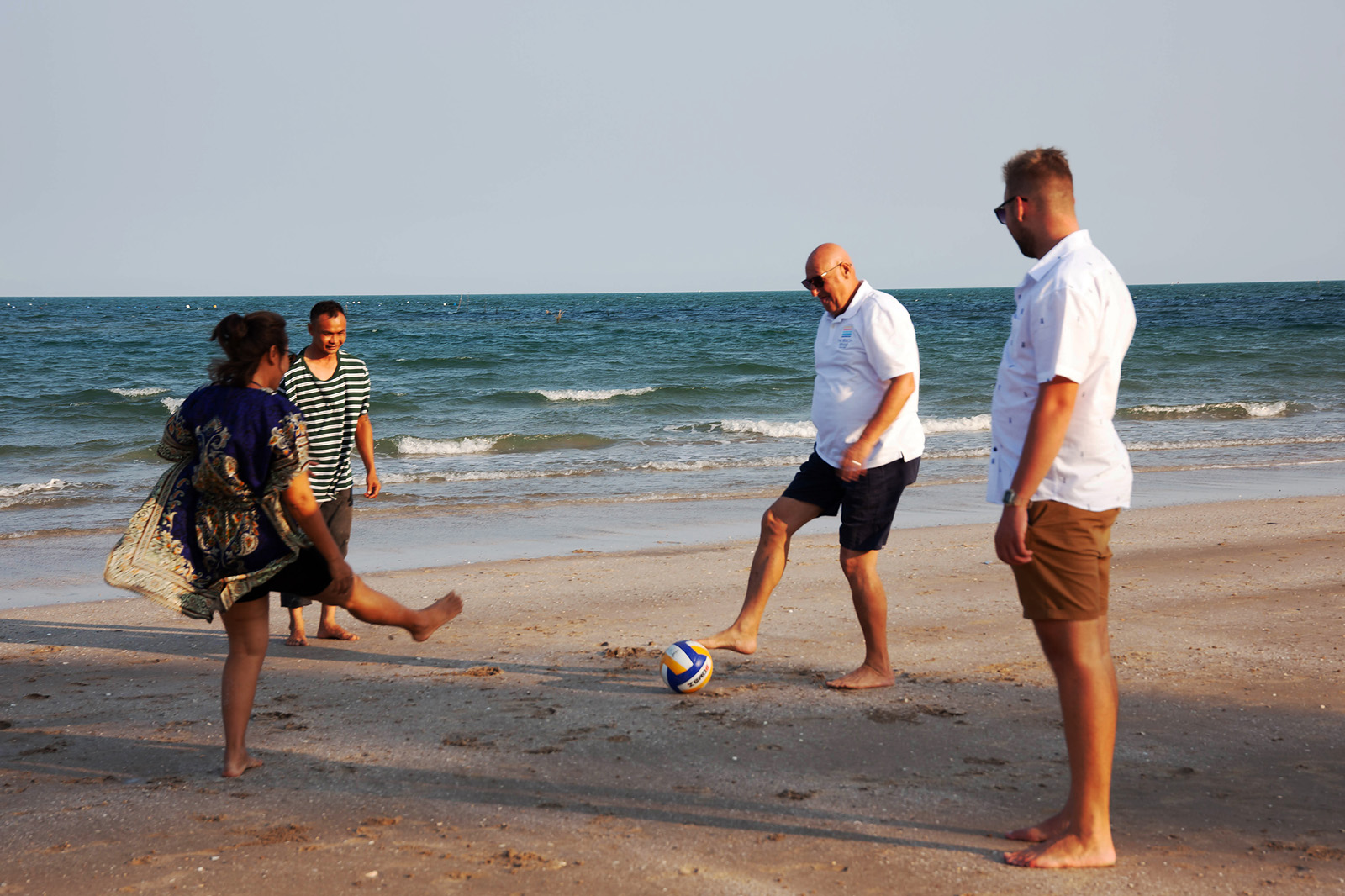
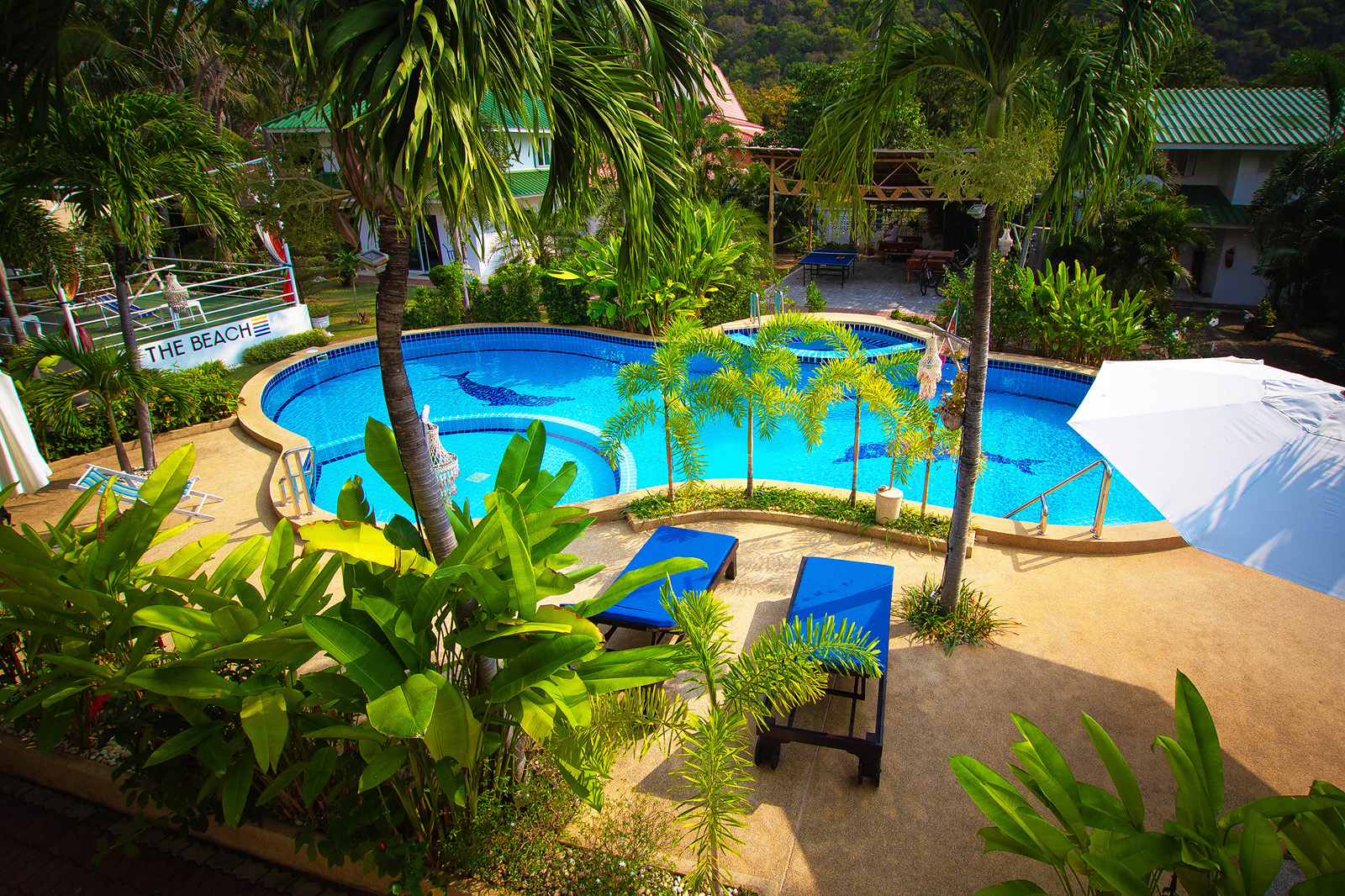
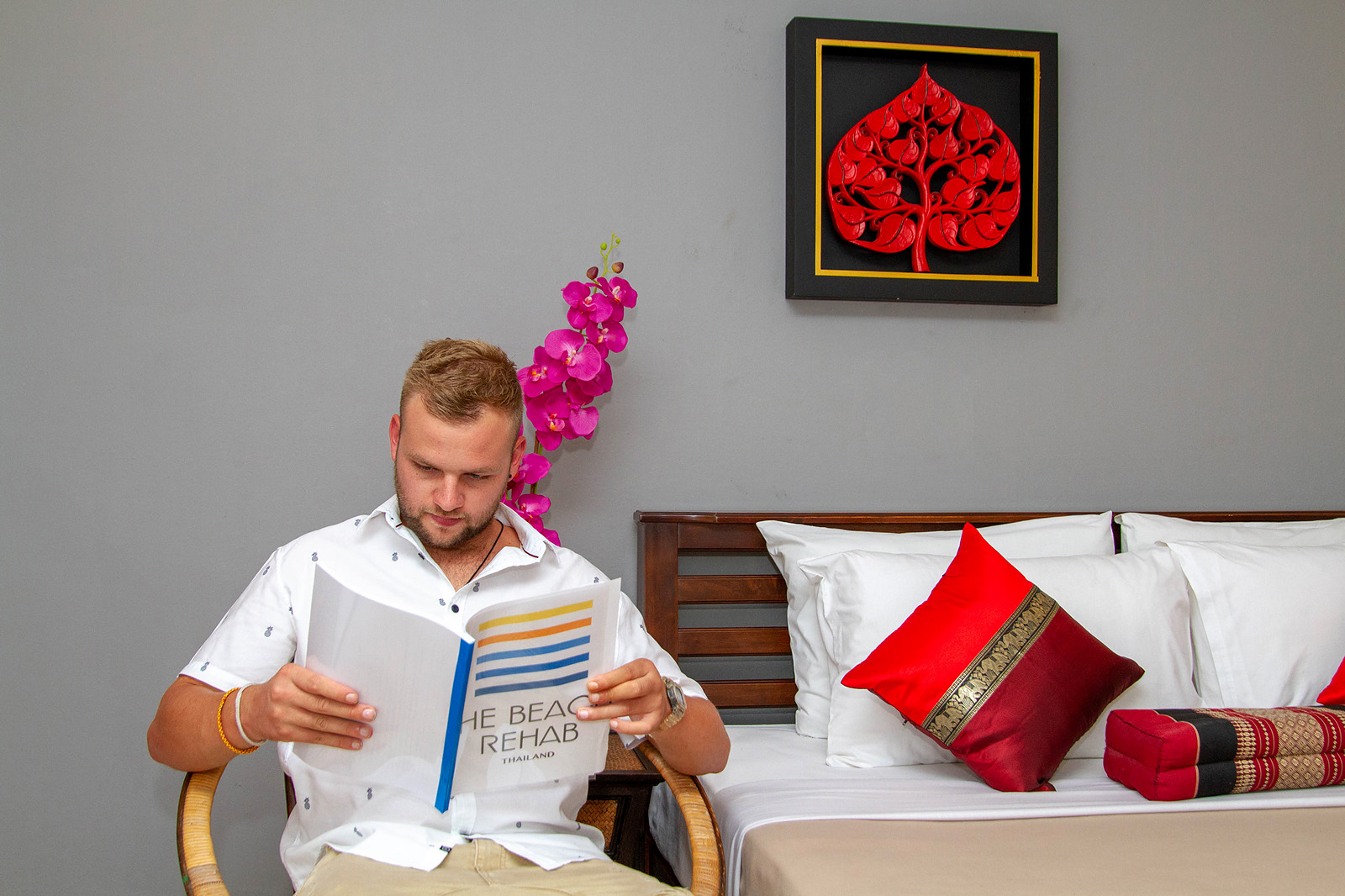

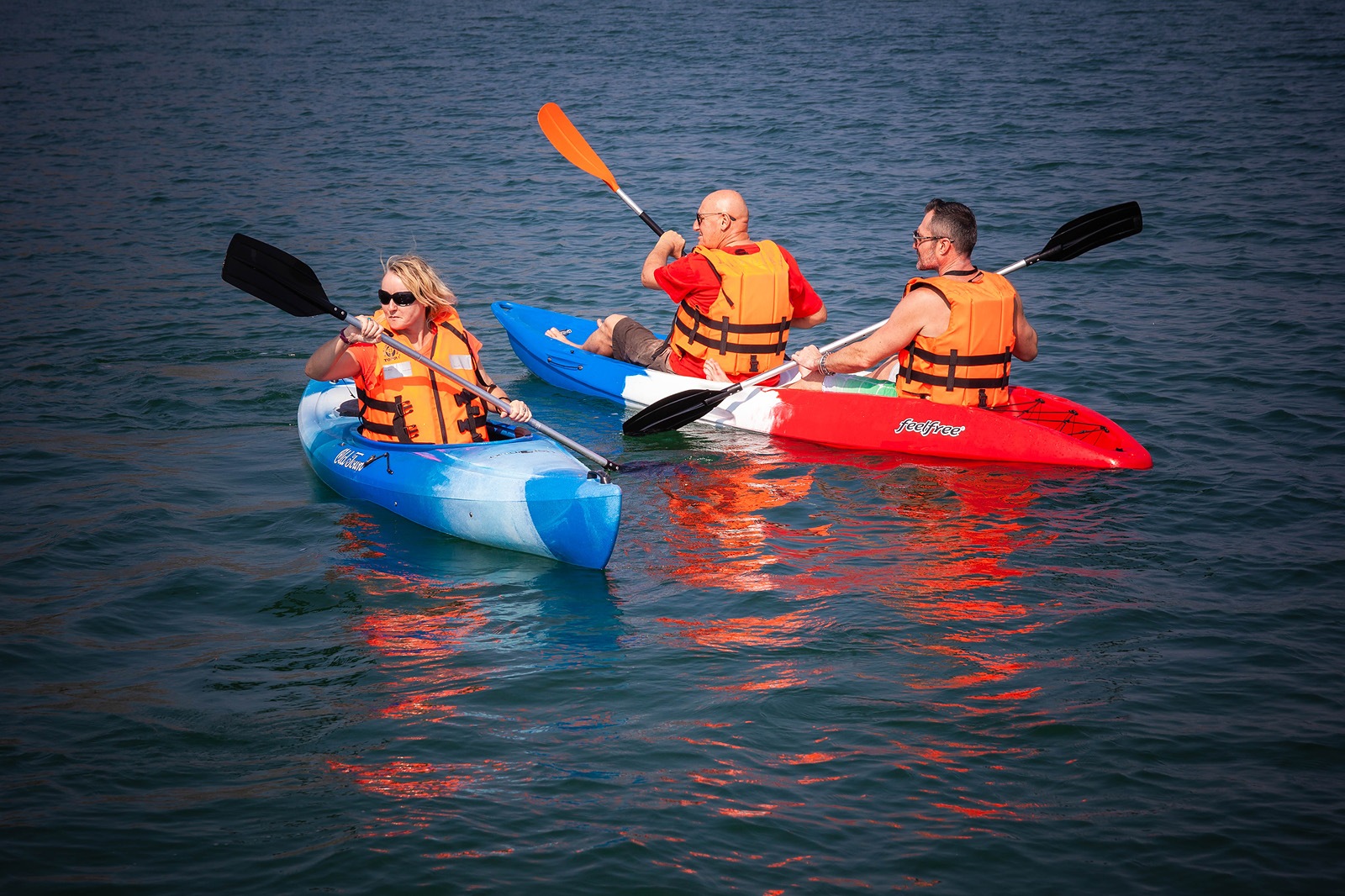
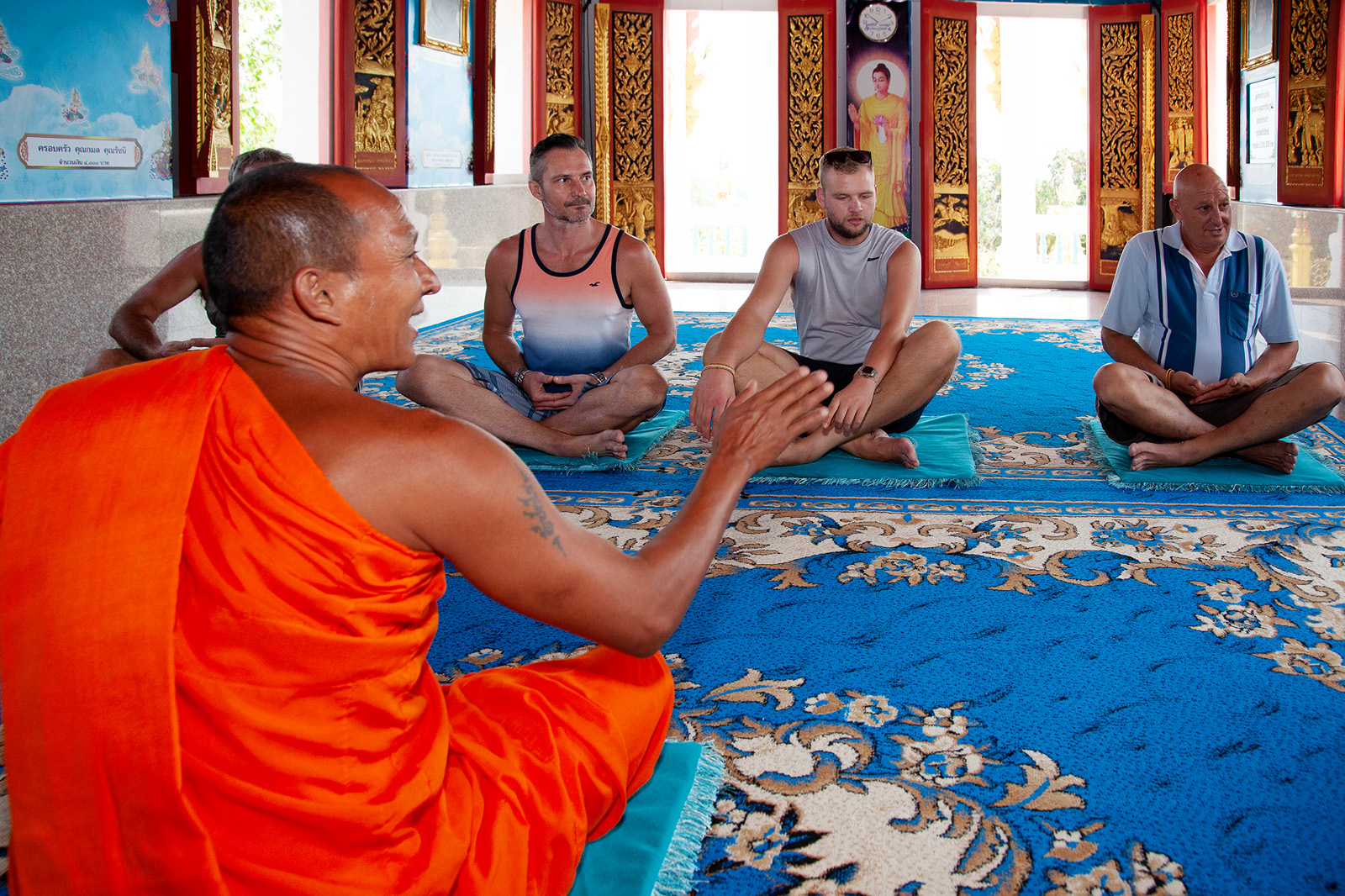
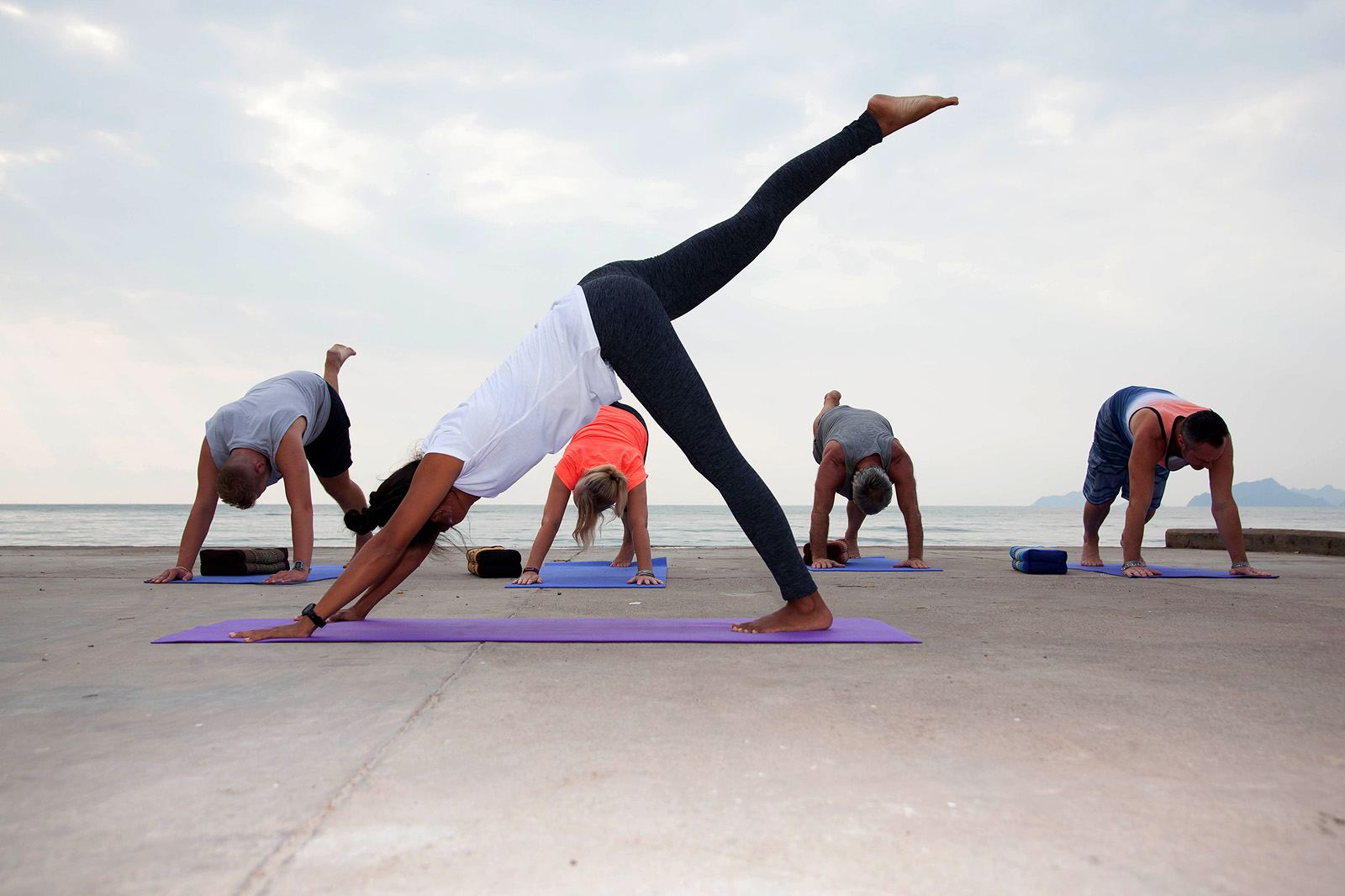
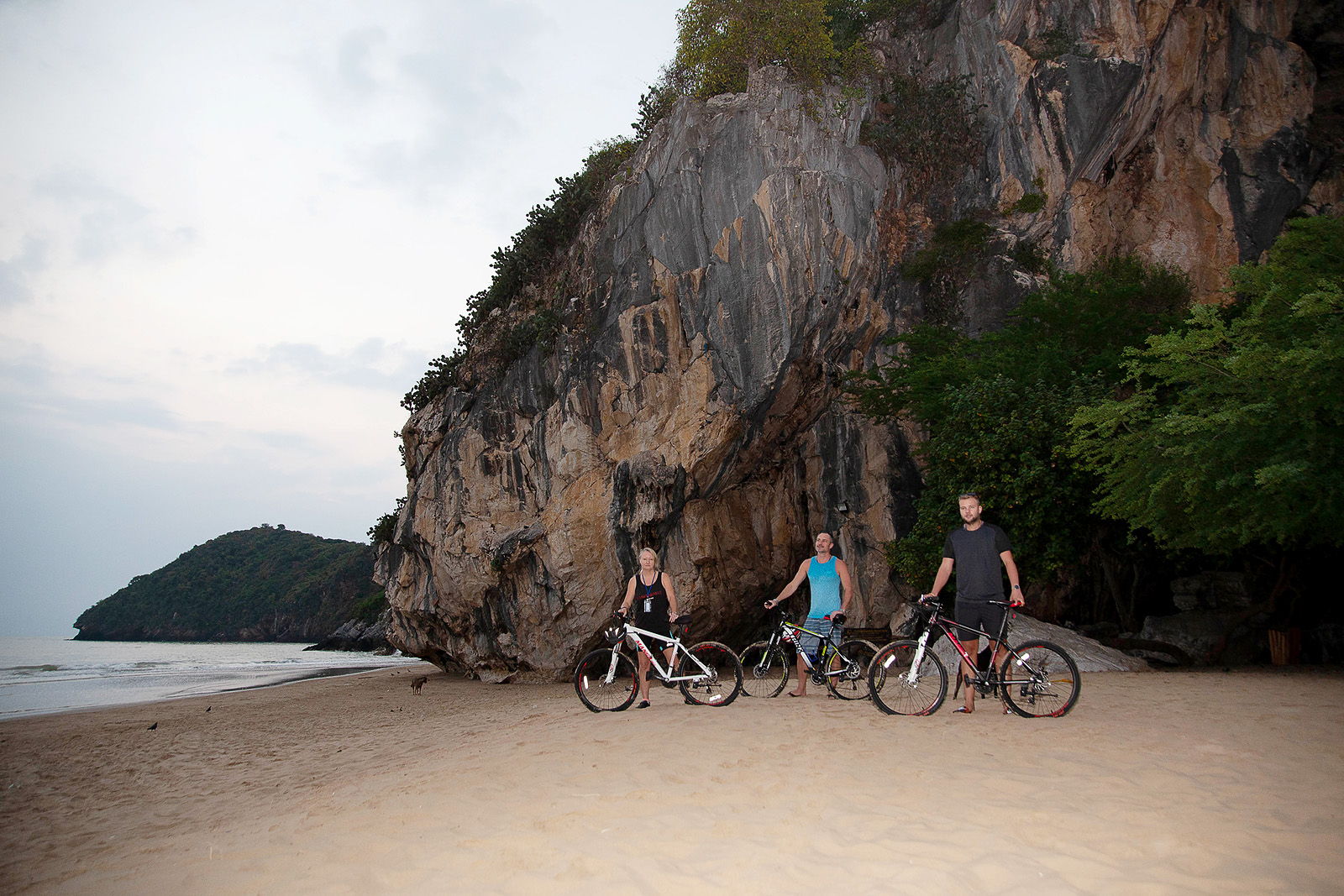
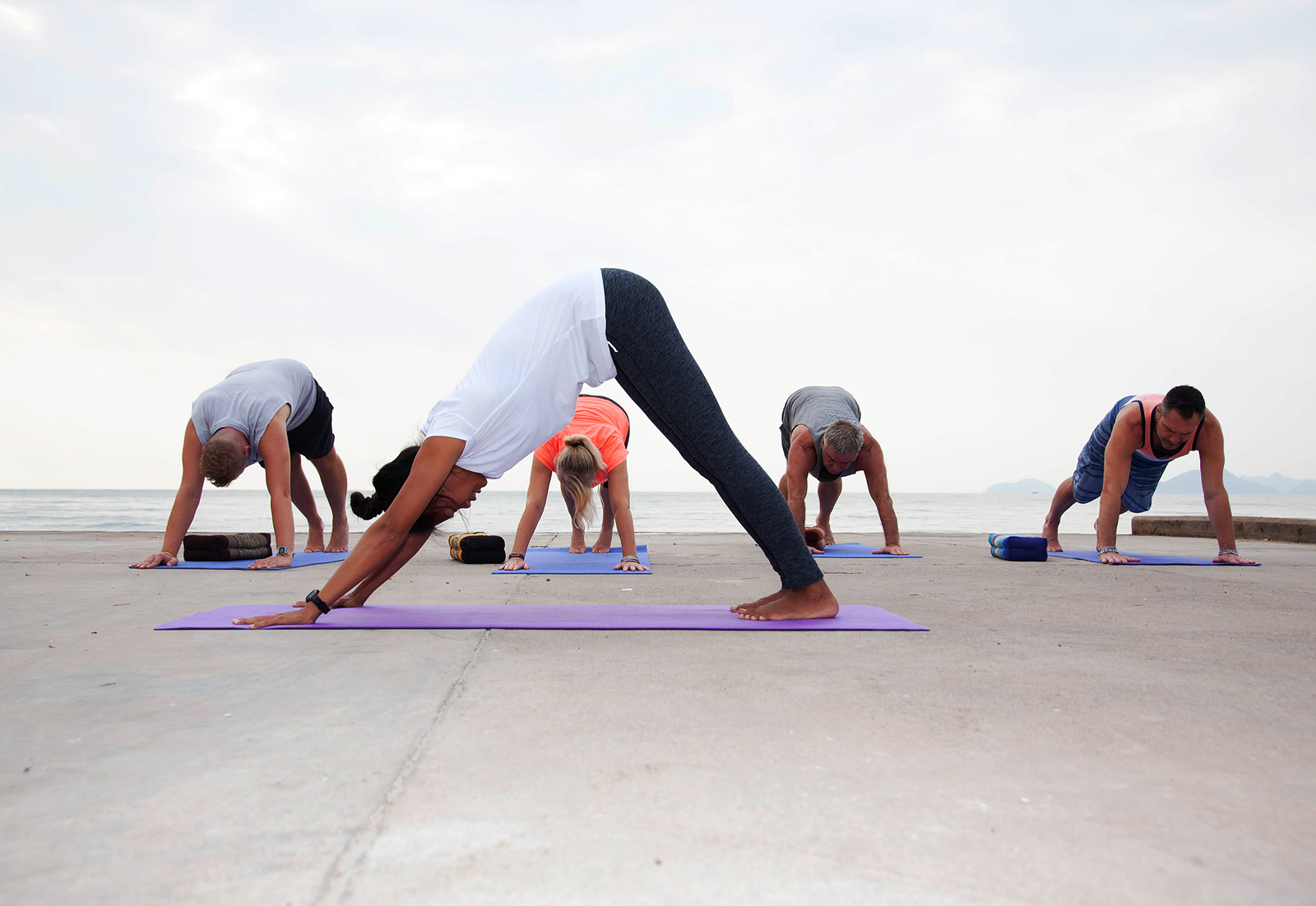
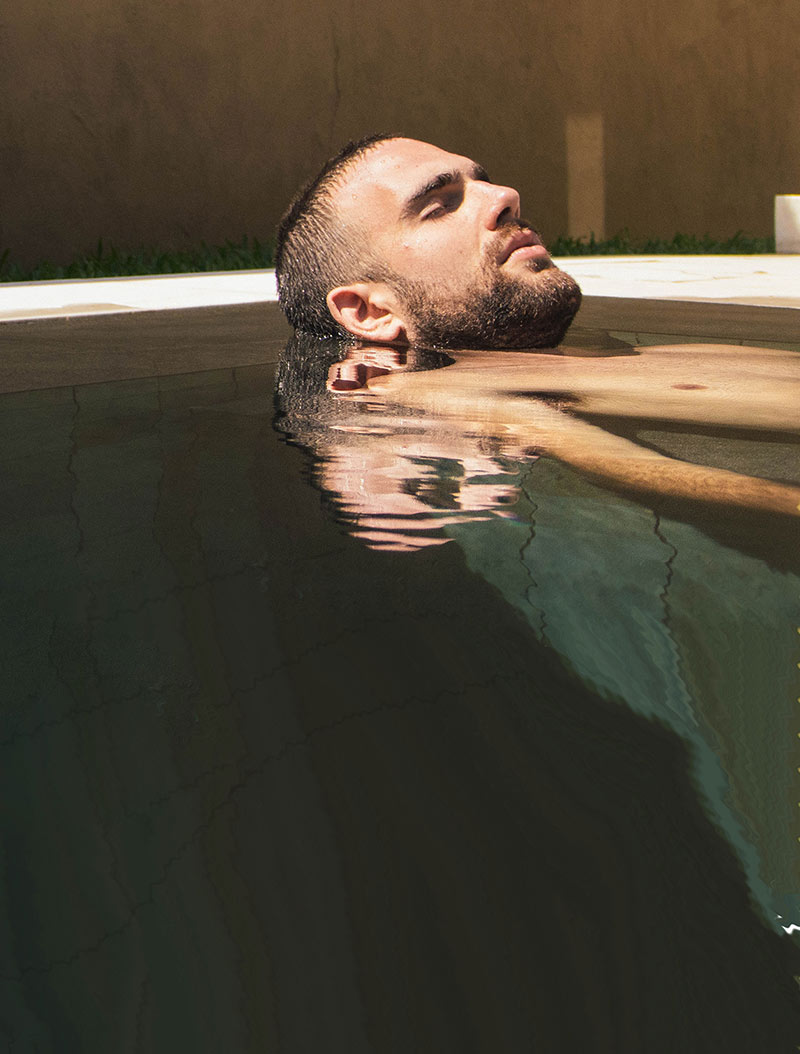
rebirth
Comprehensive Treatment Programs
The rehab program and agenda are based on 33 years of experience by Dr. Mizrahi Avraham to provide a solid foundation and emphasis for a continuous recovery process
Individual Therapy Sessions
Kundalini Yoga for Trauma Recovery
Group Therapy Programs
Mindfulness and Meditation Practices
Individual Therapy Sessions:
Customized Physical Fitness
outdoor pool in tao rehab
12 steps program
The Special Meals at Tao Rehab
The healthy Thai cuisine at Tao Rehab is based on fresh and nutritious ingredients, aiding in the body’s recovery and supporting the rehabilitation process. The meals are tailored to the nutritional needs of the patients, providing essential energy and balance for recovery.
-
- “Authentic Thai food at Dao Rehab, providing nutritious meals that support holistic recovery.”
-
- “Authentic Thai food at Dao Rehab, providing nutritious meals that support holistic recovery.”
-
- “Authentic Thai food at Dao Rehab, providing nutritious meals that support holistic recovery.”
-
- “Authentic Thai food at Dao Rehab, providing nutritious meals that support holistic recovery.”
We guarantee freedom from addiction
from start to finish
Our expert team is dedicated to guiding you toward lasting wellness and peace. Experience holistic healing at Tao Rehab, where mind, body, and spirit come together.
- 30+ Years of Experience
- Experience holistic healing
- life-changing recovery journey
- personalized and compassionate care
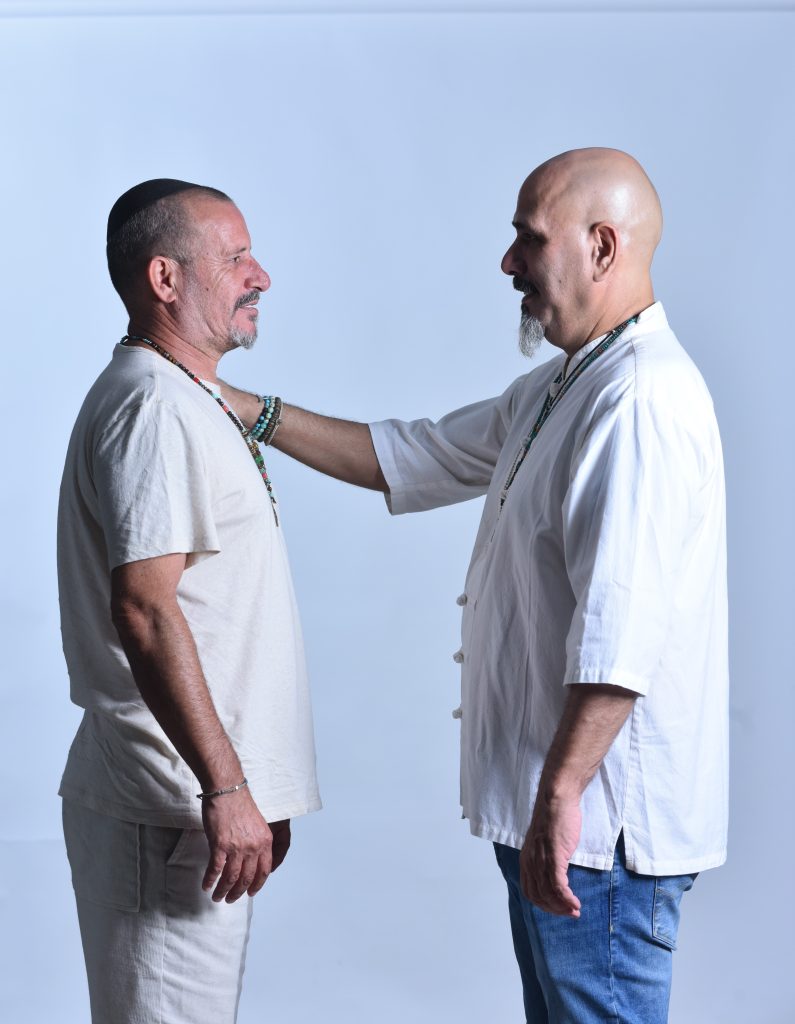
You ask, we answer
Here is a list of frequently asked questions that people might ask when they are interested in rehabilitation in general, as well as questions specifically related to the “Tao Rehab” center in Thailand:
At Tao Rehab, the rehabilitation process is holistic and tailored to each individual. We focus on treating not only the physical aspects of addiction but also the mental, emotional, and spiritual well-being. Our process includes comprehensive assessments, personalized treatment plans, and ongoing support, ensuring that each patient receives the most effective care for long-term recovery.
Tao Rehab stands out from other rehabilitation centers by offering a unique blend of traditional therapeutic approaches combined with holistic practices like meditation, yoga, and mindfulness. This integrative approach not only addresses the symptoms of addiction but also helps in healing the root causes, providing a more balanced and sustainable recovery.
Choosing Tao Rehab means choosing a center with a proven track record of success and a compassionate, experienced team. We are fully certified and adhere to the highest standards of care, ensuring that our patients receive the best possible treatment in a safe, serene environment that fosters healing and growth.
If you or a loved one is struggling with addiction and its effects on physical, mental, or emotional health, Tao Rehab offers a supportive and effective solution. We provide a safe space for individuals to confront their challenges and begin their journey toward recovery with the guidance of expert professionals.
Our treatment program at Tao Rehab includes a comprehensive range of services: medical detoxification, individual and group therapy, holistic treatments like acupuncture and massage, as well as life skills training and aftercare planning. This integrated approach ensures that patients are not only detoxed but also equipped with the tools they need to maintain sobriety.
Tao Rehab boasts a high success rate, thanks to our personalized treatment plans and continuous support even after patients leave the center. We emphasize long-term recovery, offering aftercare programs and ongoing counseling to help individuals stay on track. Many of our patients achieve lasting sobriety and lead fulfilling lives after their time with us.
While some may attempt to quit independently, the risks are significant, and the chances of relapse are high. Tao Rehab provides the structured environment, medical supervision, and psychological support necessary to make recovery more manageable and successful. Our team is here to guide you through every step, reducing the risks and increasing your chances of long-term success.
Tao Rehab is beautifully located in a serene and secluded area of pranburi Thailand, providing the perfect environment for recovery. The peaceful surroundings and natural beauty contribute to the healing process, allowing patients to focus fully on their recovery journey, away from the distractions and triggers of everyday life.
Tao Rehab offers comfortable and luxurious accommodations designed to support your recovery journey. Patients can choose between private rooms and shared spaces, all equipped with modern amenities. The environment is designed to be both therapeutic and comfortable, ensuring that patients feel at home while they focus on their healing.
Our treatment approach is comprehensive and holistic, combining evidence-based therapies with alternative practices like mindfulness and yoga. We believe in treating the whole person, not just the addiction, which is why our programs are designed to promote overall well-being and personal growth. This unique blend of therapies sets Tao Rehab apart from other centers.
The treatment program at Tao Rehab is all-inclusive, covering everything from medical detox to psychological therapy and aftercare planning. We offer individual therapy, group sessions, family counseling, and holistic treatments that address the body, mind, and spirit. Our goal is to provide a comprehensive path to recovery that addresses all aspects of addiction.
Our treatment team at Tao Rehab is made up of highly qualified professionals with extensive experience in addiction treatment and holistic therapies. They are compassionate, dedicated, and committed to helping each patient achieve lasting recovery. With a multidisciplinary approach, our team works together to provide personalized care that addresses every aspect of your well-being.
At Tao Rehab, we understand that recovery doesn’t end when you leave the center. That’s why we offer robust aftercare programs, including ongoing counseling, support groups, and regular check-ins. We also help connect patients with local resources and communities to ensure they have the support they need to maintain their sobriety long after their stay with us.
are you ready to wake up?Contact us today
“A person who suppresses his selfish desires and does what he must do, integrates in harmony on both axes: on the vertical axis – with life in its entirety and on the horizontal axis with every other individual being.”







